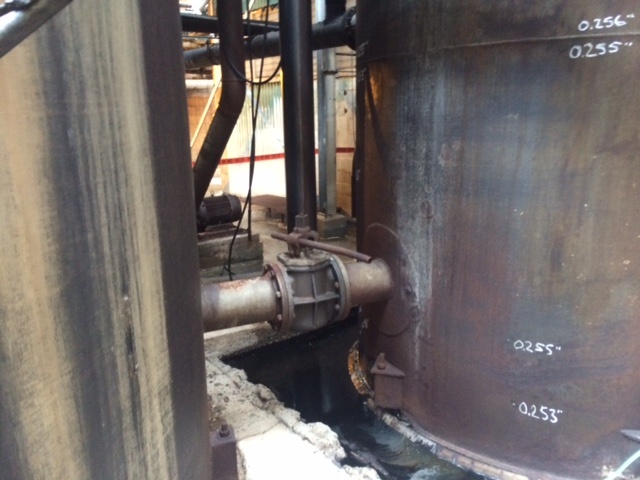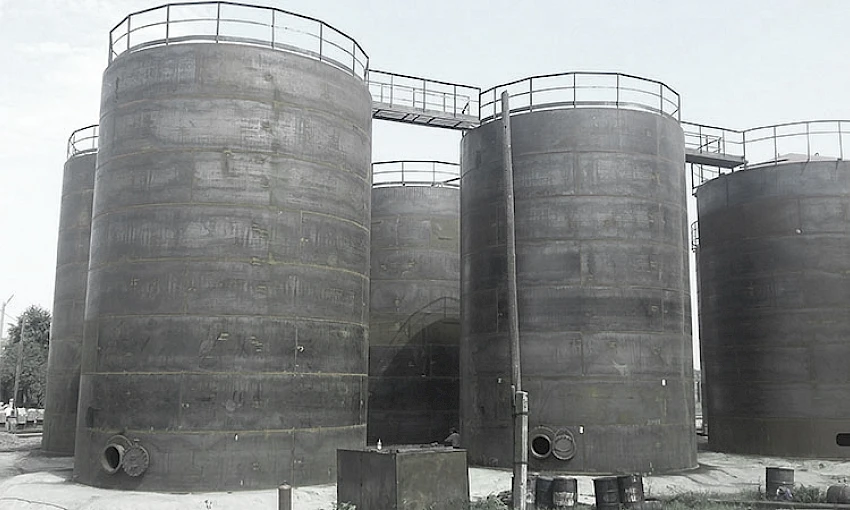The Advantages of Welding Examination for Boosted Safety And Security and Efficiency
Welding assessments are necessary for making sure that frameworks fulfill rigid market standards. They play a crucial role in recognizing flaws early, consequently boosting security and decreasing the risk of tragic failings. Additionally, these inspections can bring about considerable price financial savings by avoiding costly fixings and downtime. As organizations aim for better performance and integrity, the value of a durable assessment process can not be overemphasized. What other advantages might emerge from a dedication to complete welding evaluations?
Making Sure Compliance With Sector Criteria
Ensuring conformity with industry requirements is crucial for maintaining top quality and security in welding jobs. Complying with well established protocols not just secures workers however additionally enhances the longevity and performance of the last item. Welding assessments conducted at different phases of the process help recognize any kind of discrepancies from these criteria, enabling timely rehabilitative activities. This proactive technique minimizes the risk of failures that might arise from substandard handiwork.
In addition, conformity with sector standards fosters count on amongst stakeholders, consisting of clients, governing bodies, and the labor force. It symbolizes a dedication to quality and liable techniques, which can lead to increased company possibilities and an one-upmanship on the market - API 650 Welding Inspection. Routine assessments likewise ensure that products and methods utilized line up with the most current technological improvements and security policies. Eventually, adherence to industry standards is not merely a regulatory need yet a foundation of high quality assurance in welding projects
Enhancing Safety And Security Via Very Early Detection of Defects
While the primary objective of welding assessments commonly centers on compliance, they play an essential duty in boosting security by enabling the very early discovery of problems. Identifying concerns such as incomplete fusion, splits, or porosity during assessments can greatly minimize the risk of devastating failings. Early discovery permits prompt interventions, ensuring that damaged welds do not jeopardize architectural stability.
Additionally, organized assessments foster a society of safety within companies by emphasizing the value of quality control. This aggressive method not just safeguards personnel however also safeguards the surrounding atmosphere. Normal examinations can disclose trends in defect event, enabling changes in welding techniques and training programs to attend to underlying concerns.
Welding inspections serve as an important safeguard, reinforcing general safety and security and performance by identifying problems prior to they intensify right into significant hazards. This commitment to quality directly adds to the durability and integrity of bonded frameworks.
Reducing Costs by Avoiding Failures
By executing detailed welding examinations, companies can effectively reduce costs related to failures and rework. The proactive recognition of defects throughout the welding procedure lessens the threat of disastrous failings that can cause expensive repair work or replacements. Early detection allows for prompt treatments, which protects against the rise of small problems into significant troubles that stress resources and spending plans. In addition, by making sure that welds satisfy specified standards, companies can prevent delays in project timelines brought on by the demand for substantial rework or extra inspections later on in the procedure. This not only conserves cash but also boosts operational efficiency. A reputation for high quality craftsmanship can lead to enhanced client complete satisfaction and repeat business, further contributing to financial security. In general, spending in welding assessments is a strategic approach that cultivates cost financial savings while safeguarding the stability of welded frameworks.
Improving Efficiency and Long Life of Structures


Welding inspections play a vital duty in boosting the efficiency and longevity of frameworks, as they confirm that welds are performed to the highest like it possible criteria. By identifying defects early in the welding process, evaluations stop weaknesses that might jeopardize structural stability. This positive technique assurances that the products utilized satisfy needed specifications, consequently enhancing their load-bearing capability and durability.
Furthermore, constant monitoring of welding practices adds to the total high quality of building jobs. The possibility for tiredness and failing over time is considerably decreased when welds are verified for conformity with sector requirements. Structures that are constructed with correctly inspected welds are most likely to experience less upkeep issues and boosted durability.
Inevitably, extensive welding inspections not just bolster the instant effectiveness of a structure yet also expand its operational life-span, offering lasting value to both end-users and contractors alike.
Promoting a Society of Quality and Integrity
A commitment to high quality and integrity in welding practices substantially adds to the general success of building and construction tasks. When organizations focus on these worths, they foster a culture that urges meticulous interest to information and adherence to sector standards. This society not just enhances the skill level of welders however additionally promotes accountability and team effort amongst all stakeholders entailed in the task.

Regular welding evaluations work as a cornerstone in this cultural change, enhancing the value of regular efficiency and safety and security actions (API 650 Welding Inspection). By applying strenuous assessment protocols, companies can identify possible imperfections early, mitigating dangers and preventing expensive rework. An emphasis on high quality and dependability imparts confidence amongst customers and partners, leading to stronger partnerships and improved credibilities.
Partnerships Inevitably, promoting a culture of top quality and dependability in welding practices not just elevates task outcomes yet likewise assures lasting sustainability and success in the building industry.
Often Asked Questions
What Credentials Should a Welding Inspector Have?
A welding examiner should possess pertinent qualifications, such as AWS CWI or CSWIP. Additionally, they must have experience in metallurgy, welding procedures, and evaluation methods, in addition to strong analytical abilities and focus to detail for efficient analyses.

Exactly How Usually Should Welding Inspections Be Performed?
Welding inspections should be conducted routinely, ideally after each significant phase of the welding procedure. In addition, periodic inspections ought to happen based on project demands, solution conditions, and regulative standards to guarantee ongoing top quality and safety and security.
What Devices Are Utilized During Welding Inspections?
Welding evaluations utilize numerous devices, including ultrasonic testers, magnetic particle testers, aesthetic examination devices, and radiographic devices. Each tool offers a certain function, guaranteeing weld quality and structural integrity via detailed assessment and evaluation.
Can Welding Inspections Be Performed From Another Location?
Welding assessments can certainly be performed from another location index utilizing advanced modern technologies such as drones and specialized cameras. These devices enable assessors to examine welding quality and honesty from a distance, boosting effectiveness and safety in different environments.
What Are the Typical Kinds Of Welding Problems?
Usual types of welding issues include porosity, splits, incomplete blend, undercutting, Clicking Here and slag incorporation. These defects can endanger the integrity and toughness of welds, causing possible failures in architectural applications if not attended to properly.
Welding assessments are essential for making sure that frameworks meet rigid sector requirements. Welding inspections conducted at different phases of the process assistance recognize any kind of discrepancies from these requirements, making it possible for timely restorative activities. Welding inspections play a necessary duty in enhancing the performance and durability of frameworks, as they validate that welds are executed to the highest standards. Welding inspections should be performed routinely, ideally after each significant phase of the welding process. API 650 Welding Inspection. Welding assessments make use of numerous devices, consisting of ultrasonic testers, magnetic fragment testers, aesthetic examination devices, and radiographic devices